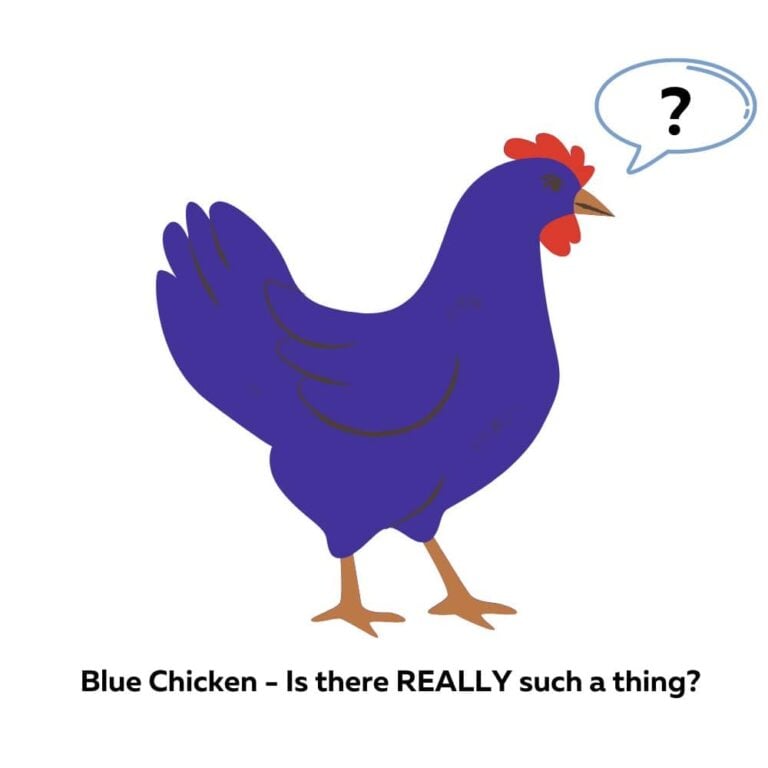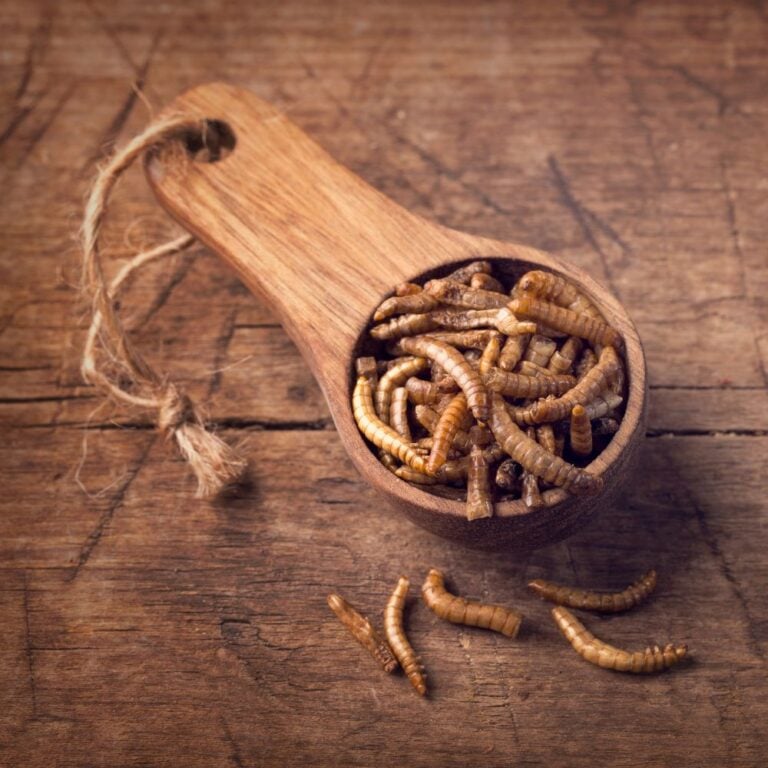A broken beak is a problem that no chicken owner wants to deal with – but unfortunately, knowing how to fix a broken beak is a skill that all chicken keepers should have in their back pockets.
Chickens are similar to humans in that their beaks grow a lot like fingernails. These birds can “file down” their beaks, or so to speak, with actions like preening and wiping their beaks on objects.
Just like humans with their fingernails, each chicken has its own unique beak, too. Some chickens grow beaks that are long and elegant, while others have beaks that are short and stubby.
Unfortunately, just like human fingernails, bird beaks can (and often do) break. Therefore, it’s essential that you know how to fix a broken beak – and how to best care for your chickens in the process.
Here are some tips.
Table of Contents (Quickly Jump To Information)
All About Chicken Beaks
Before you can help a hen with a broken beak, it’s important to understand some basic anatomy.
A chicken’s beak is made out of keratin, an insoluble protein that is known for its toughness. It is the same protein that helps make up horns, antlers, hooves, and, for us humans, fingernails.
Each chicken’s beak is comprised of two parts – the upper portion is the maxillary rostrum, while the bottom is the mandibular rostrum.
Beaks are constantly growing, but only the beak itself and not its bony framework. The bones in a chicken’s beak are connected to the skull. The tip of the beak contains nerve endings and blood vessels, which makes it sensitive to pain.
As you probably already know, chickens use their beaks for all sorts of tasks, from eating to grooming and even for balance.
What Causes a Beak to Become Broken?
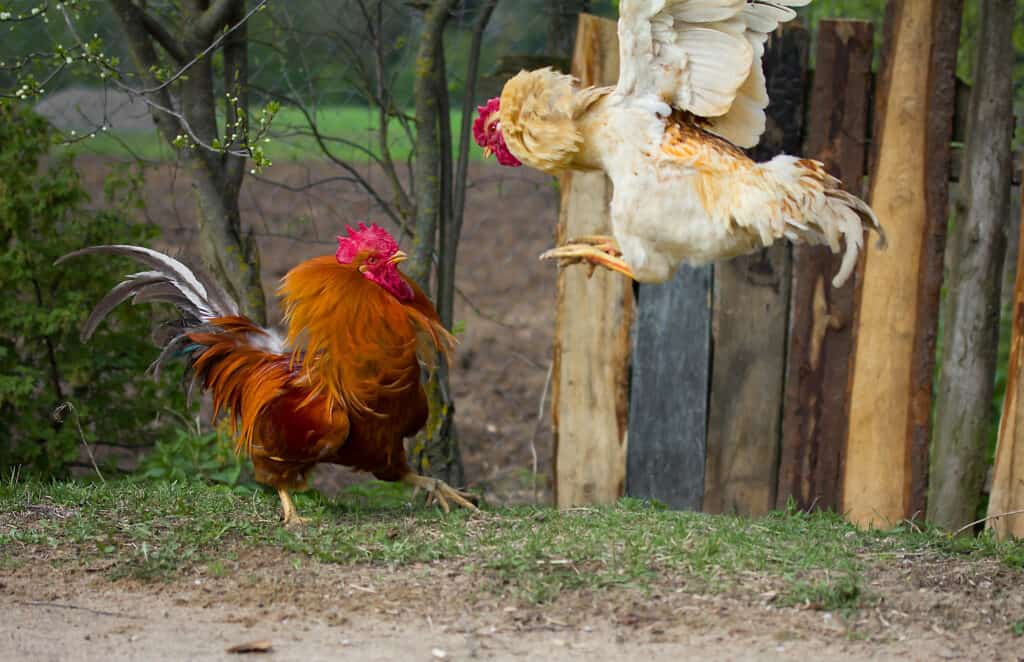
Chickens use their beaks as tools, and like all tools, they can become broken. Most chickens use their beaks like they would use their hands, if they had them, so it’s no surprise that they can easily become worn down. They use their beaks for everything from eating to grasping, exploring to grooming.
Chickens even use their beaks to communicate!
Minor beak injuries are incredibly common. Chickens can obtain injured beaks from fighting with predators, engaging in squabbles with other chickens, or even getting them stuck in hard objects, like between the slats in hardware cloth fencing.
Chickens can also injure their beaks from some of the following behaviors:
- Collisions
- Fighting
- Grooming
- Digging
- Exploring
- Eating
How to Prevent Beak Injury
If you’re worried about your chickens developing broken beaks, you should do whatever you can to prevent a beak injury in the first place.
Most of the time, chickens injure their beaks via interactions with other chickens. Often this is due to fighting, the likelihood of which can be reduced by making sure your chickens have plenty of food, water, and space to roam.
How to Fix a Broken Beak
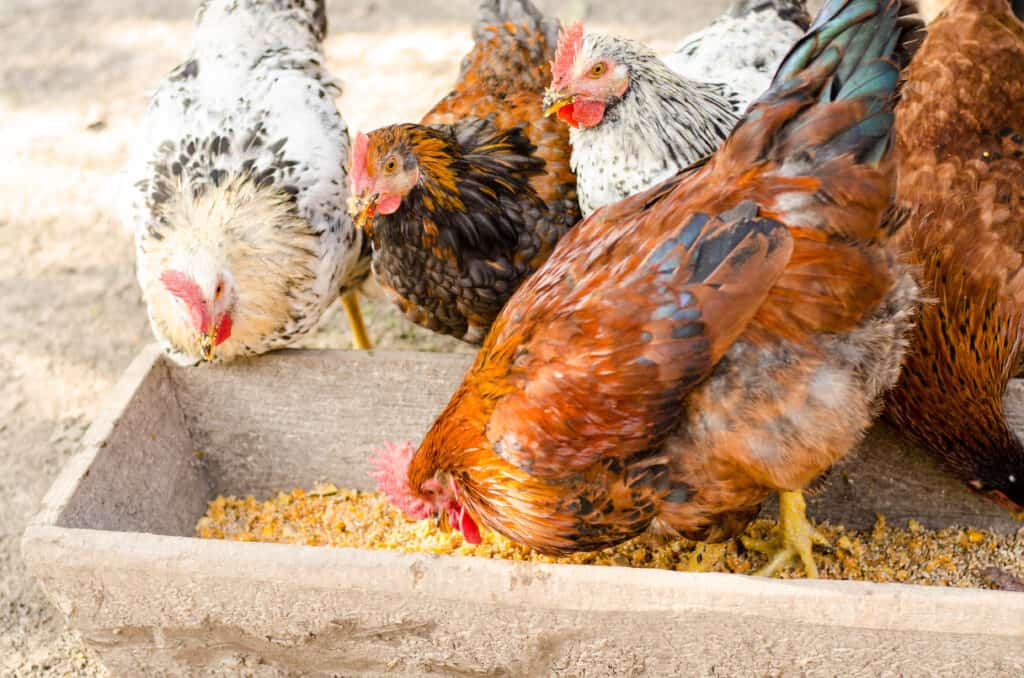
Your first step in fixing the cracked beak of your chicken is to examine the extent of the damage. Beak injuries can be as severe as complete removal or severing of the beak or as minor as a simple chip. Often, if it’s just a tiny chip you’re dealing with, you may not have to do anything at all.
If your chicken has a more significant or traumatic beak injury, you’ll know that you need to address it because your chicken is suffering extreme pain. Your chicken might not be eating or drinking normally, which can of course threaten its ability to gain weight, maintain weight, and survive.
If it’s just a minor crack, feel free to leave the cracked beak alone. Often, a tiny crack will grow out and repair itself over time. However, more severe cracks sometimes need to be stabilized and splinted. Ideally, you should call in a veterinarian to help you out, but the reality is that there are not that many veterinarians who specialize in chickens in most areas of the country.
Therefore, you should be prepared to render any first-aid necessary to help your chicken out.
Engage in Regular Beak Maintenance
For the most part, chickens will take care of their beaks on their own – you won’t have to do a single thing. Your chickens will care for their own beaks via actions like preening (which help prevents issues like chicken mites), picking up rocks, and engaging in other activities.
If you keep your chickens in an enclosed run and do not allow them to free range, you may want to provide them with hard objects like rocks to help them hone their beaks. Grit is also essential.
Some chickens develop beaks that grow abnormally. Also referred to as scissor beaks, these beaks require assistance when it comes to maintaining their shape and length.
Have a First Aid Kit on Hand
It’s a good idea to have a well-stocked first-aid kit on hand regardless of your chicken flock’s overall size and wellbeing.
You’ll want to keep some of the following items on hand with special regard to beak care:
- Vetericyn Poultry Care Spray
- Tweezers or forceps
- Superglue
- Cotton swabs
- Old towels
- Bloodstop powder or spray (such as Blu-Kote)
- Nail clippers
- Pain medication
One unique first aid kit item you might also want to keep on hand is a plain tea bag – you’ll learn more about why in a moment.
Another item that might be helpful? Herbs. You can buy some herbs for chickens here, which will provide your chickens with some of the nutrients they need to recover in an all-natural way.
Clean the Area Thoroughly – Then It’s Time for Surgery
If you notice a hen with a broken beak, your first step is going to be to clean the area thoroughly. The worst thing you can do is to allow dirt and bacteria to get inside the wound. As you clean the wound with poultry care spray, you are going to want to be extremely gentle – that tissue is sensitive.
As you work, you can keep you calm by wrapping her in a towel with her wings secured by her side. She won’t be able to flap her wings or injure herself more in this fashion.
If there are any rough edges where the beak has broken, you may need to use a nail file to smooth them out. Otherwise, it’s the tea bag to the rescue.
Use your teabag to help create a salve. You need to empty the contents of the packet and cut a small patch from the bag that’s just slightly larger than the torn area of the beak. Using your pair of tweezers, you can put some superglue gel on the patch. Align the broken piece of beak and put the glue patch over it. Make sure no rough or jagged edges remain.
Once the first outer layer of glue dries, you can apply a second layer of glue over it with a cotton swab. Let that dry completely, too.
This remedy works great on minor cracked beaks and cracks but be cautious about using too much superglue gel, as it can be irritating to birds. Do not let the glue touch any exposed tissue or get into the bird’s mouth.
If the beak looks incredibly dirty or infected when you discover your hen, you may want to delay the glue-sealing process. This can seal in bacteria that will make your chicken incredibly sick. Instead, clean the area and apply disinfectant. Once you’ve taken care of the infection, you can fix her beak.
Helping a Hen With Exposed Beak Tissue
If your hen has a beak injury that is so severe that she has exposed beak tissue, you may need to get a bit more creative in your approach.
If you notice bright red blood, you will want to make sure the tissue is no longer red and swollen before you do anything else. Use some Vetericyn spray to keep the wound clean and keep your hen away from the flock for a few days. Apply the wound cleaner as often as possible.
Another tip – if you don’t have any Vetericyn, you can use some hydrogen peroxide or Blu-Kote.
Just avoid using superglue on a beak that has exposed tissue. It will really hurt your hen.
If you find that your hen is missing only a portion of the beak, keep pressure on it to cut off blood supply loss until you can get your chicken into a veterinarian. Often, the use of acrylic beka prosthetics or splints will be necessary.
Caring for a Hen With a Broken Beak
Once you’ve mended the beak of your hen, you need to take a few extra steps to make sure she gets back to feeling 100%. For starters, you will want to keep her away from the rest of the flock. This will avoid further injury and also prevent other birds from picking on her.
If the wound involves blood, this tip is going to be doubly true – chickens will pick on each other if they notice any exposed blood supply and this can kill your chicken. Some chickens even engage in cannibalistic behavior when given the opportunity.
Instead, wait until the wound is undetectable before returning your hen to the flock. Watch the wound carefully over the next few months to make sure the beak heals completely. Usually, your chicken will be able to return to her natural behaviors, honing her own beak without dislodging the crack.
In some cases, the injury may be extreme enough to warrant the use of antibiotics or anti-inflammatories. These must be prescribed by a veterinarian.
Caring for your hen will, more or less, be the same after the beak injury.
Feeding Chickens With Beak Injuries
Do not drastically alter the diet of your hen – adding in foods or any kinds of supplements that your chickens are not used to can make your chicken feel thrown off-guard and unhealthy.
Instead, consider providing your chicken with a natural feed on a regular basis. You can find a good option here that will keep your birds happy and healthy at all times.
You may, however, find that your hen has a hard time picking up pieces of food. You might need to switch to a mash and add some water. It should be the consistency of grits. Replace and clean the dish every few hours to prevent the growth of mold. Of course, providing plenty of fresh, clean water is also essential.
Will A Cracked Beak Heal Itself?
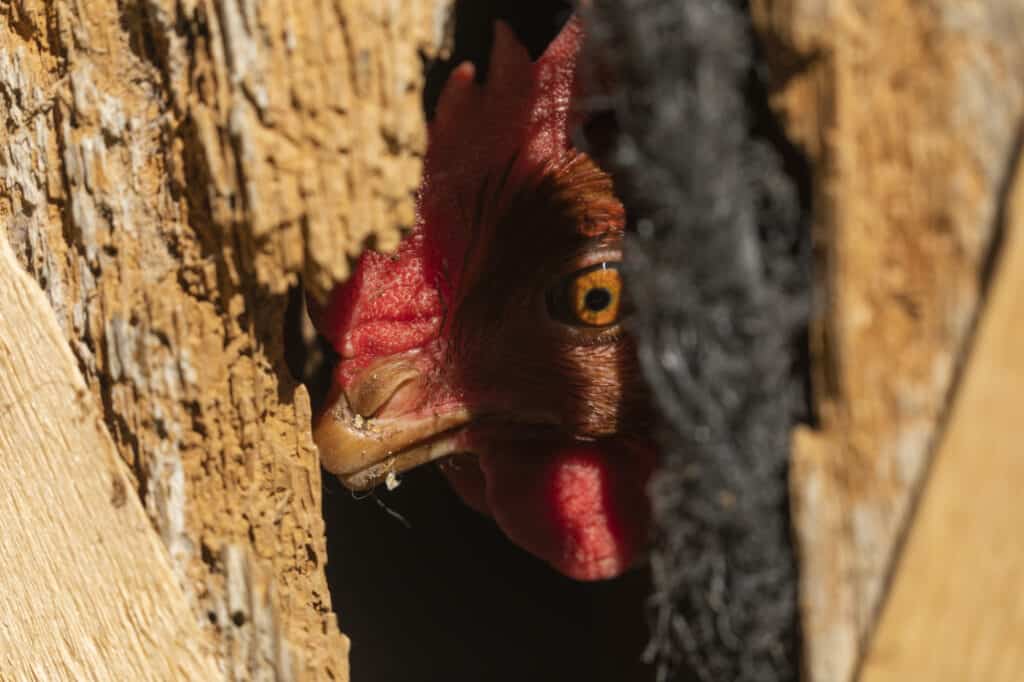
In many cases, a cracked beak will heal itself – but only if you provide your chicken with the TLC she needs to recover.
One final tip? Know what you can do in the event of an emergency that you cannot treat yourself. Often, veterinarian care is necessary when it comes to treating broken beaks. While veterinarians can be tough to find, it would behoove you to have veterinarian contact information on hand long before you need it.
Fortunately, broken beaks aren’t usually fatal for chickens – as long as you can catch and treat them early. Stay vigilant!
Related Articles
- How Often Should You Bring Your Pet to the Vet?
- How Can My Hen Grow Her Feathers Back Fast?
- The Best Herbs For Chickens To Eat? These Are Them (Plus One For First Aid!)
- Raising Backyard Hens For Eggs Is Easy!
Maat van Uitert is a backyard chicken and sustainable living expert. She is also the author of Chickens: Naturally Raising A Sustainable Flock, which was a best seller in it’s Amazon category. Maat has been featured on NBC, CBS, AOL Finance, Community Chickens, the Huffington Post, Chickens magazine, Backyard Poultry, and Countryside Magazine. She lives on her farm in Southeast Missouri with her husband, two children, and about a million chickens and ducks. You can follow Maat on Facebook here and Instagram here.

![5 Supplements For Healthier Eggs That Yield BIG Results For YOUR Health [Podcast]](https://thefrugalchicken.com/wp-content/uploads/2016/05/supplements-for-healthy-eggs-feature-min.jpg)


